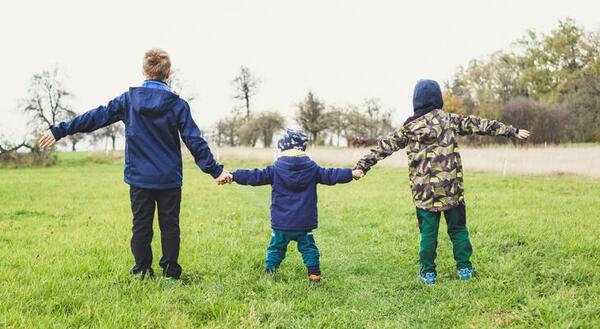
As the oldest child of three, and also having a child of my own, I can say first-hand that children are going to argue, not get along, and even fight sometimes. When facilitating parenting classes, the topic of how to prevent children’s arguments was brought up often. Fortunately, getting along with others is a skill that can be learned. Often, I turn to the Illinois Early Learning Project (IEL) for resources. IEL is a source of evidence-based, reliable information on early care and education for parents, caregivers, and teachers of young children in Illinois. They have wonderful resources on a wide variety of topics, and I am going to share what they have to say about helping children learn to get along.
IEL first suggests finding out why the children are fighting. Is it because they are trying to get adult attention or another friend or sibling to interact with them? Maybe they are acting out feelings that they cannot express in words. After identifying the problem or cause, remind them of any established rules like “No hitting – you may not hit, and they cannot hit you.” Then help them to put their conflict into words and clarify what the issue really is: “It looks like Sara wants the truck right now and so do you. Is that right?”
Helping them to cool off is important, especially younger children who can have big emotions without the words to express them. Make sure that all the children involved are calm enough to talk. You may have to help them find ways to calm themselves so they will be ready to solve the problem. When they are ready, help them to generate solutions. I look at this as something similar to brainstorming solutions when adults problem-solve. Ask them “What can you do so you could both be happy?” If they can’t think of any ideas, throw some out including a really odd one to get them started. When you compile this list of possible solutions, evaluate them and choose a plan emphasizing empathy and fairness. Ask the children about the different strategies: “Josh, can Sara play with the truck first, while you play with the crane? We can set the kitchen timer for five minutes, and then you can trade toys. Does this seem fair to you?” The children can decide which action to take which will help them to learn and prepare for future situations.
Lastly, don’t forget to follow up and see if the plan is working. Always reinforce positive behavior and acknowledge acts of kindness and respect with smiles and encouraging words.
Be patient as you teach conflict resolution skills that help children form friendships and work successfully with others. Model the kind and empathetic behavior you want the children to practice. For tip sheets on this and many other topics, visit here
Source: Illinois Early Learning Project
Author: Cheri Burcham is responsible for family life programming in the counties of Coles, Cumberland, Douglas, Moultrie, Shelby and other parts of east central Illinois as needed. Cheri’s emphasis is on healthy lifestyles throughout the life span which include family relationships, communication, caregiving, stress management and human development including early childhood and healthy aging. Her passion is to help people to be their best selves and to promote a healthier, independent older population. When Cheri is not engaged in Extension work, she can be found raising Monarch butterflies and spreading the word about their amazing life cycles and migration to anyone who will listen!